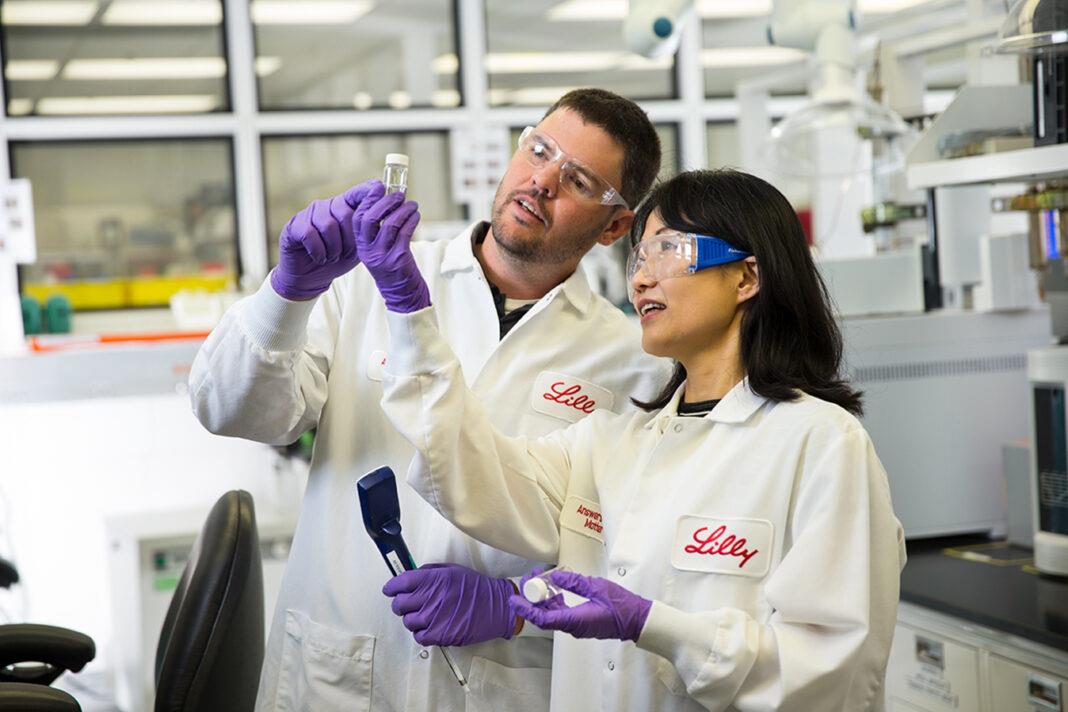
403
Sorry!!
Error! We're sorry, but the page you were looking for doesn't exist.
Lilly’s Verzenio® (abemaciclib) increases overall survival in HR+, HER2-, high-risk early breast cancer with two years of therapy
(MENAFN- Weber Shandwick) Lilly and Company (NYSE: LLY) today announced positive topline results from the primary overall survival (OS) analysis of the Phase 3 monarchE trial. Treatment with two years of Verzenio plus endocrine therapy (ET) demonstrated a statistically significant and clinically meaningful improvement in OS compared to ET alone in patients with hormone receptor positive (HR+), HER2-, node-positive, high-risk early breast cancer.
The seven-year landmark analysis also demonstrated sustained benefit in invasive disease-free survival (IDFS) and distant relapse-free survival (DRFS), reinforcing the consistency and durability of treatment effect across endpoints.
"Preventing disease relapse and helping patients live longer is the ultimate goal and a high bar in the adjuvant setting. Achieving a statistically significant OS benefit with just two years of Verzenio therapy reinforces its differentiated profile in high-risk HR+, HER2- early breast cancer," said Jacob Van Naarden, executive vice president and president of Lilly Oncology. "These data validate Verzenio as the standard-of-care for patients with node-positive, high-risk disease and increase the urgency to ensure all eligible patients are treated."
With all patients having completed or discontinued the two-year course of Verzenio, the overall safety profile of Verzenio was unchanged and consistent with previous reports.
Detailed results will be presented at a future medical meeting, submitted for publication in a peer-reviewed journal and discussed with regulatory bodies.
About the monarchE Study
monarchE was a global, randomized, open-label, two cohort, multicenter Phase 3 clinical trial that enrolled 5,637 adults with HR+, HER2-, node-positive EBC at high risk of recurrence. The study enrolled patients across more than 600 sites in 38 countries and is the only adjuvant study designed to investigate a CDK4/6 inhibitor specifically in a node-positive, high risk EBC population. To be enrolled in Cohort 1 (n=5,120), which is the FDA-approved population, patients had to have 4+ positive nodes or 1-3 positive nodes and at least one of the following: tumors that were ≥5 cm or Grade 3. Patients enrolled in Cohort 2 could not have met the eligibility criteria for Cohort 1. To be enrolled in Cohort 2 (n=517), patients had to have 1-3 positive nodes and Ki-67 score ≥20%. Patients in each cohort were randomized 1:1 to receive either Verzenio 150 mg twice daily plus standard-of-care adjuvant ET (Cohort 1, n=2,555; Cohort 2, n=253) or standard-of-care adjuvant ET alone (Cohort 1, n=2,565; Cohort 2, n=264) for 2 years. ET continued for at least 5 years if deemed medically appropriate. The primary endpoint was IDFS. Consistent with expert guidelines, IDFS was defined as the length of time before breast cancer comes back, any new cancer develops, or death. OS was a key secondary endpoint in monarchE. The OS analysis plan was amended after the primary analysis of IDFS, following consultation with regulators, to increase the number of required OS events from 390 to 650 to ensure a minimum follow-up of at least 5 years and enable a more mature survival dataset.1,2
The seven-year landmark analysis also demonstrated sustained benefit in invasive disease-free survival (IDFS) and distant relapse-free survival (DRFS), reinforcing the consistency and durability of treatment effect across endpoints.
"Preventing disease relapse and helping patients live longer is the ultimate goal and a high bar in the adjuvant setting. Achieving a statistically significant OS benefit with just two years of Verzenio therapy reinforces its differentiated profile in high-risk HR+, HER2- early breast cancer," said Jacob Van Naarden, executive vice president and president of Lilly Oncology. "These data validate Verzenio as the standard-of-care for patients with node-positive, high-risk disease and increase the urgency to ensure all eligible patients are treated."
With all patients having completed or discontinued the two-year course of Verzenio, the overall safety profile of Verzenio was unchanged and consistent with previous reports.
Detailed results will be presented at a future medical meeting, submitted for publication in a peer-reviewed journal and discussed with regulatory bodies.
About the monarchE Study
monarchE was a global, randomized, open-label, two cohort, multicenter Phase 3 clinical trial that enrolled 5,637 adults with HR+, HER2-, node-positive EBC at high risk of recurrence. The study enrolled patients across more than 600 sites in 38 countries and is the only adjuvant study designed to investigate a CDK4/6 inhibitor specifically in a node-positive, high risk EBC population. To be enrolled in Cohort 1 (n=5,120), which is the FDA-approved population, patients had to have 4+ positive nodes or 1-3 positive nodes and at least one of the following: tumors that were ≥5 cm or Grade 3. Patients enrolled in Cohort 2 could not have met the eligibility criteria for Cohort 1. To be enrolled in Cohort 2 (n=517), patients had to have 1-3 positive nodes and Ki-67 score ≥20%. Patients in each cohort were randomized 1:1 to receive either Verzenio 150 mg twice daily plus standard-of-care adjuvant ET (Cohort 1, n=2,555; Cohort 2, n=253) or standard-of-care adjuvant ET alone (Cohort 1, n=2,565; Cohort 2, n=264) for 2 years. ET continued for at least 5 years if deemed medically appropriate. The primary endpoint was IDFS. Consistent with expert guidelines, IDFS was defined as the length of time before breast cancer comes back, any new cancer develops, or death. OS was a key secondary endpoint in monarchE. The OS analysis plan was amended after the primary analysis of IDFS, following consultation with regulators, to increase the number of required OS events from 390 to 650 to ensure a minimum follow-up of at least 5 years and enable a more mature survival dataset.1,2
Legal Disclaimer:
MENAFN provides the
information “as is” without warranty of any kind. We do not accept
any responsibility or liability for the accuracy, content, images,
videos, licenses, completeness, legality, or reliability of the information
contained in this article. If you have any complaints or copyright
issues related to this article, kindly contact the provider above.


















Comments
No comment